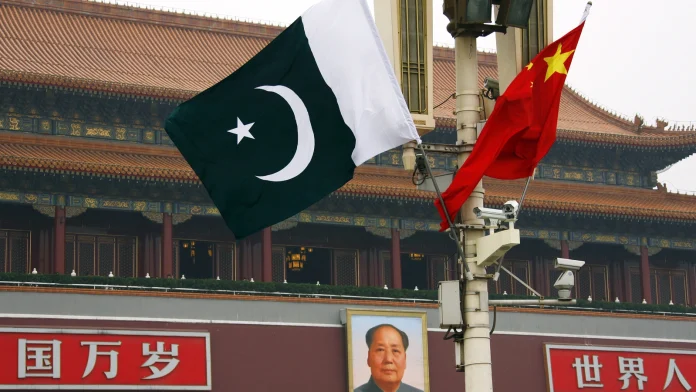Organised by the Pakistan-China Institute [PCI], one had expected that the recent international conference on “China at 75: A Journey of Progress, Transformation and Leadership” would be yet another exchange of poetic phrases and adulations coined by Beijing and Islamabad to describe their relations being “a friendship higher than Himalayas, deeper than ocean, sweeter than honey and stronger than steel.” However, what Chinese Ambassador to Pakistan Jiang Zaidong stated during this conference clearly indicates that relations between these two “iron brothers” may not be as hunky dory as they claim.
Saying that “China wants to see steps against perpetrators of terrorist attacks and all those involved in such attacks could be penalised,” Ambassador Zaidong made it clear that such incidents were “unacceptable for China and we do hope that the Pakistani side will ensure the safety and security of its nationals working in Pakistan.” He also noted with concern that Chinese nationals had been “attacked twice in only six months and these attacks have also caused casualties.” [Emphasis added]. His terse message sans sweetness of honey undoubtedly came as a bolt from the blue for Islamabad.
Visibly rattled by the Chinese ambassador’s undisguised admonition, Pakistani Foreign Minister Ishaq Dar responded with the assurance that Islamabad would leave no stone unturned in ensuring security of Chinese nationals. Dar disclosed that he along with President Asif Ali Zardari would visit Beijing in early November to brief the Chinese authorities on the actions taken by Islamabad to bring perpetrators to book but refused to make any public disclosures on progress of investigations regarding terrorist attack on Chinese nationals. This raises strong suspicions that Islamabad may not have anything substantial to reveal.
Cracks Emerge
That the Chinese ambassador exceeded his brief in this case is unlikely as China chooses its diplomats with due care and ensures that they implicitly toe Beijing’s line and steer clear of any controversy.
So, when the Chinese ambassador broke protocol and took to the rostrum once again and issued a rejoinder to Dar’s feeble assurances by highlighting the deteriorating security environment in Pakistan, it became absolutely clear that he was emphatically reiterating Beijing’s concerns. Had Sino-Pak friendship truly been sweeter than honey as both Beijing and Islamabad claim, then would the Chinese ambassador use a public platform to launch a scathing attack on the Pakistan Army’s inability to check terrorist activities?
Beijing has all the reasons to be annoyed. For one, it has invested heavily in the ambitious USD 62 billion China Pakistan Economic Corridor [CPEC] project but Islamabad has not yet been able to fulfil its repayment obligations and is continuously seeking debt restructuring and bailouts. Pakistan’s circular debt arising out of its inability to pay for subsidies has resulted in irregular reimbursement to Chinese Independent Power Producers [IPPs]. Lastly, despite repeated assurances, the Pakistan Army has not been able to get the better of Baloch freedom fighter groups targeting Chinese nationals working on CPEC projects.
New Tensions
Pakistan too has several genuine reasons to be angry. In trying to keep Beijing happy, Islamabad has made several compromises ranging from overlooking the humongous averse environmental impact of CPEC projects to extending extraordinary concessions to Chinese working on CPEC projects and even disregarding the genuine concerns of locals. This has accentuated political and social upheaval as well as contributed to the country’s burgeoning financial crisis and Islamabad is miffed that Beijing has not adequately appreciated Pakistan’s actions. This is evident from Pakistan Foreign Office [FO] spokesperson Mumtaz Zahra Baloch’s remark that “The statement from the Chinese ambassador is perplexing, especially considering the positive diplomatic traditions between Pakistan and China.” [Emphasis added].
In an attempt to appease Beijing, Islamabad has indeed yielded a lot. For example, on China’s bidding, the Pakistan Army took the high-handed decision of not only converting the entire port city of Gwadar into a virtual fortress but also treating locals as potential terrorists and subjecting them and their houses to repeated searches. It has also institutionalised forcible abductions and enforced disappearances in the garb of security necessity and thereby further alienated the beleaguered Baloch people.
The irony is that while Chinese trawlers are allowed to fish in Gwadar’s waters, the Pakistan navy restricts local fishermen from accessing their traditional fishing areas for security reasons. While Rawalpindi may deny it, but the fact that all major mass movements against human rights excesses, enforced disappearances, extra judicial killings and denial of basic rights in Balochistan like the Baloch Yakjethi Committee [Balochistan Unity Committee] or BYC and Haq Do Tehreek Gwadar [give Gwadar its rights] started after CPEC activities commenced in Balochistan surely can’t be a mere coincidence.
‘Friendship Trap’
Both the Haq Do Tehreek leader Maulana Hidayat ur Rehman Baloch and BYC chief Dr [Ms] Mahrang Baloch squarely blame Beijing for aggravating the already sorry state of affairs prevailing in Balochistan. The former has reportedly issued a warning to Chinese nationals in Gwadar that if Islamabad “ignores” their peaceful protests, the Baloch people would be well within their rights “to pick up and use weapons to protect our rights.”
Similarly the BYC leader is sanguine that “China or any other country investing in Balochistan is directly involved in the Baloch genocide. The enforced disappearances and forced displacements in the Makran coastal belt are huge. They are looting our resources with no gain to local Baloch.” Her observation is based on the harsh reality and a true reflection of Baloch sentiments that is fuelling armed resistance by nationalist groups.
With Beijing becoming publicly more assertive this “iron brother” of Pakistan is fast turning into a “big brother” and Pakistan is probably realising that in today’s world, there are no free lunches. As the metaphoric Sino-Pakistan friendship extravaganza shows signs of crumbling, Islamabad does deserve sympathy for having walked into Beijing’s ‘friendship trap’.
However, Islamabad cannot absolve itself for taking China’s friendship for granted-it surely couldn’t be unaware of Greek philosopher Plato’s [427-348 BC] warning to mankind given many-many centuries ago that “True friendship can exist only between equals.”

